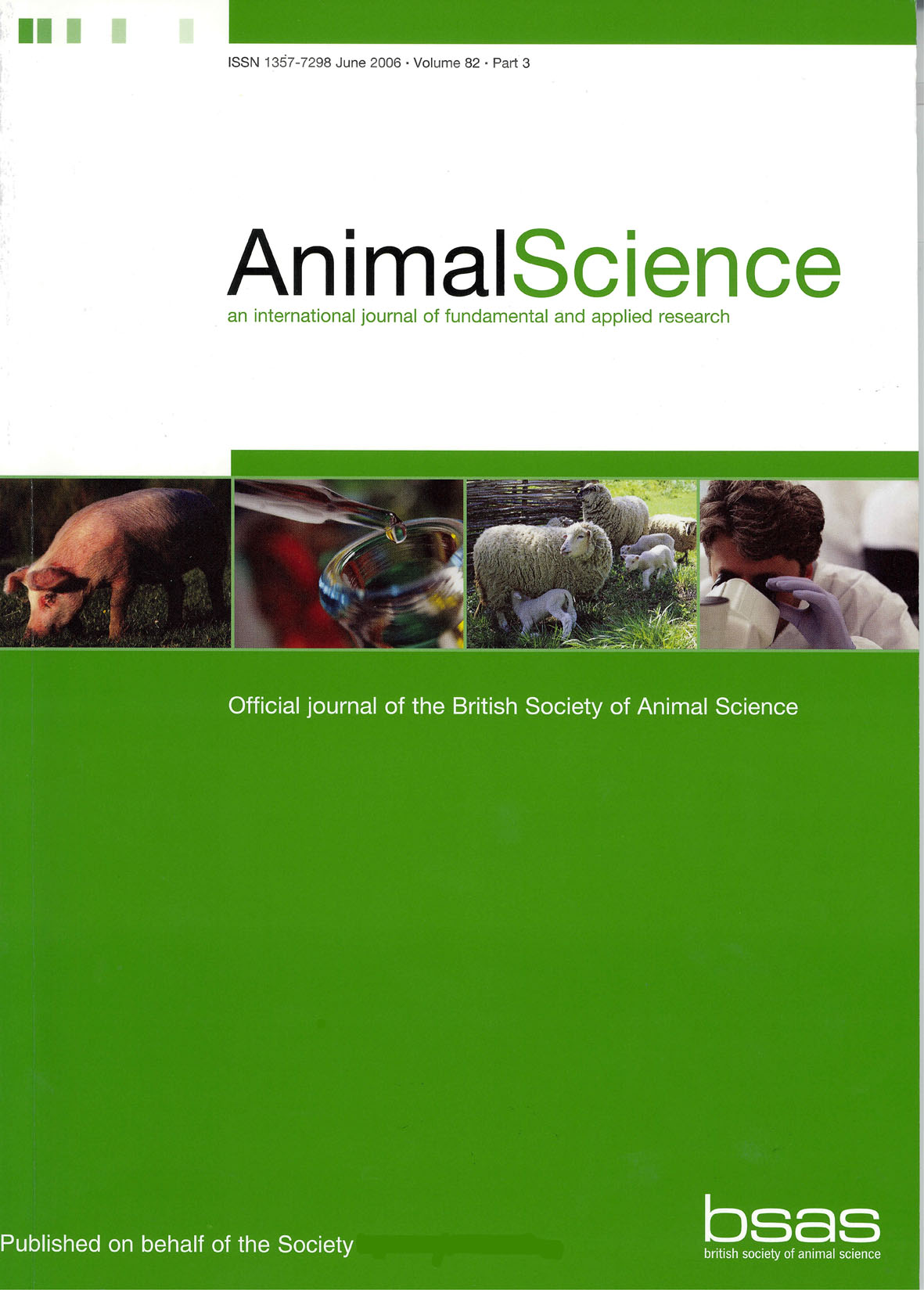Article contents
An analysis of the Entebbe herd of Nganda cattle in Uganda
Published online by Cambridge University Press: 01 February 1961
Extract
In the herd of Nganda cattle at the Government Livestock Experiment Station, Entebbe, Uganda, it was found that of the known environmental factors affecting milk production, the more important ones were age (in lactations) and length of the calving interval preceding the second and third lactations. The correlations between performance in different lactations of the same animal were high for lactation milk yield (0·73) and average daily milk yield (0·62) and low for calving interval (0·21) and dry period (0·15). The repeatability of lactation length was intermediate (0·42). The heritability values were around 0·3 for the weight measurements, around 0·2 for yield characteristics and around 0·1 for length of lactation and age at first calving.
The sires used in the breeding programme at Entebbe made little impact on production performance in the herd. The estimated genetic improvement in milk yield through selection of dams of cows was also low. It is argued from comparison with results from other parts of the tropics that superior genotypes for milk production are difficult to come by among indigenous cattle in these areas and that we should therefore look for other opportunities and methods to move ahead faster in the future.
- Type
- Research Article
- Information
- Copyright
- Copyright © British Society of Animal Science 1961
References
REFERENCES
- 15
- Cited by


